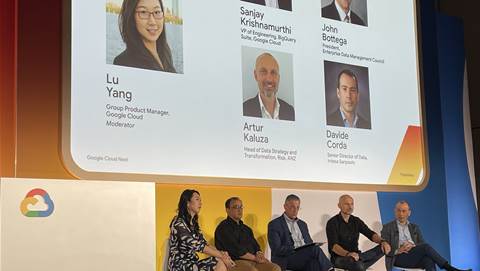Gartner has named cloud sustainability as key in the enterprise transition to net-zero.
A recent report suggests that cloud sustainability, carbon footprint measurement and advanced grid management software are emerging technologies that will have immediate environmental sustainability impacts, and will see mainstream enterprise adoption by 2025.
According to Annette Zimmermann, research vice president at Gartner, “Environmental sustainability cannot be the responsibility of just a few industries – if our climate is to be protected, sustainable business must be a global priority.
“The transition to a net-zero economy will be as disruptive as the industrial revolution or the digital revolution, requiring new technologies, business models, strategies and processes.”
Both the sustainable delivery and consumption of cloud services are predicted to increase, as enterprises consider the impact of cloud computing on their climate strategies.
“Public cloud providers also have a unique ability to invest in sustainability capabilities, such as moving cloud data centres to be physically located near renewable energy sources,” said Zimmermann.
In the first webinar of the Equinix Australia Digital First Series focusing on Australia’s digital innovation outlook for 2022, Guy Danskine, Managing Director at Equinix Australia said he is seeing an increasing maturity in cloud buying decisions.
“We're seeing a maturity in the market where cloud is an evaluation criteria, but it's not the only piece of the puzzle. And so what we're really seeing is that the market seems to be coalescing around a hybrid multi cloud architecture as been a de facto architectural choice.”
When it comes to driving better sustainable outcomes, Danskine said Equinix is at the forefront of data centre sustainability.
“Data centres, we are contributors to carbon emissions and to run data networks, it does take electricity,” said Danskine.
Equinix was the first global data centre to signed up to the Paris Climate Accord with science based targets, designed to offset the business’ operations globally using 100 percent renewable energy by 2030.
“We're making great strides here in Australia, where we've signed a power purchasing agreement with a consortium of other partners, including Nike, Goldman Sachs, and H&M and we'll be working with them to also help them offset their usage of electricity,” he said.
According to Danskine, these decisions are being made as a direct result of customer demand.
“Our customers are now coming to us and saying ‘We want to know your strategy for getting to this point’ and it's becoming a non-negotiable.”



_(23).jpg&h=140&w=231&c=1&s=0)
_(20).jpg&h=140&w=231&c=1&s=0)







 iTnews Executive Retreat - Security Leaders Edition
iTnews Executive Retreat - Security Leaders Edition
 iTnews Benchmark Awards 2026
iTnews Benchmark Awards 2026
 iTnews Cloud Covered Breakfast Summit
iTnews Cloud Covered Breakfast Summit












_(1).jpg&h=140&w=231&c=1&s=0)



